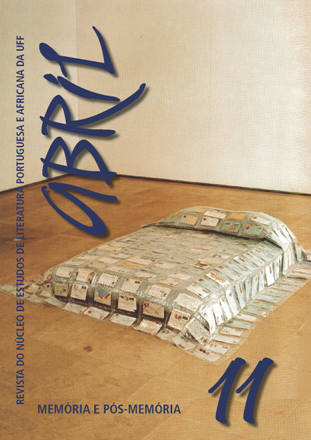Alegory and testimonial in ‘Muana Puó’ (1969), novel by Pepetela
DOI:
https://doi.org/10.22409/abriluff.v5i11.29677Keywords:
Pepetela, Muana Puó, witness, Theodor Adorno. Angolan LiteratureAbstract
Muana Puó was the first novel written by Pepetela. It was written in 1969 but its publication was made only in 1978. Its title refers to a tchokuê mask that symbolizes the rite of passage to adulthood, and that worked as a motto, so the Angolan writer could construct an allegory based on the fight between crows and bats as oppressors and oppressed as well. In a 1987’s article about this narrative, I declared that “to adopt as justification the position of oppressed, to explain the use of the language treatment, engaged and even leafleted, is unbearable”. In 2012, twenty-five years later, I reread the novel under the prism of the witness, reevaluating the relations between ethics and aesthetics, having as support the outcomes provided by Adorno in “O que significa elaborar o passado” (1959) and the analysis of Marcelo Caetano (“O enigma de Muana Puó”, 2004) and Laura Padilha (“A força de um olhar a partir do Sul”, 2009).Downloads
Downloads
Published
How to Cite
Issue
Section
License
I authorize the journal Abril - NEPA/UFF to publish the paper of my authorship/responsibility that I now submit, in case it is accepted for online publication.
Moreover, I declare that this contribution is original, that it was not submitted to any other editor for publication, and I sign the present declaration attesting the truth of all its contents.
The copyright of the works published at the virtual space of the journal Abril - NEPA/UFF are automatically entitled to the journal. Their total or partial reproduction is conditioned to the authors' citations and publication data.

Abril is licensed under a Creative Commons - Attribution-NonCommercial 4.0 International (CC BY-NC 4.0).









